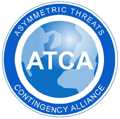
The Rivals -- China, India (and
Japan)
Balance-of-Power and Disruptive Transformation
London, UK - 30th April 2008, 09:02 GMT
Dear ATCA Colleagues
[Please note that the views presented by individual contributors
are not necessarily representative of the views of ATCA, which is neutral.
ATCA conducts collective Socratic dialogue on global opportunities and threats.]
We are grateful to Bill Emmott, the former Editor-in-Chief
of The Economist, for his submission to ATCA , "The Rivals -- China,
India (and Japan) -- Balance-of-Power and Disruptive Transformation."
He writes:
Dear DK and Colleagues
Re: The Rivals -- China, India (and Japan) -- Balance-of-Power
and Disruptive Transformation
In response to the recent ATCA Socratic dialogues concerning China's power
projection and the future of Chinese nationalism in the light of the Tibet
protests, I wish to make several brief points. They are, in effect, by way
of updates for my recently published book, "Rivals: How the Power Struggle
between China, India and Japan will Shape our Next Decade."
[CONTINUES]
[ATCA Membership]
With best wishes
Bill Emmott
Bill Emmott was the Editor-in-Chief of The Economist, the
world's leading weekly magazine on current affairs and business, from 1993
until March 31st 2006. He is now an independent writer, speaker and consultant.
After studying politics, philosophy and economics at Magdalen College, Oxford,
he moved to Nuffield College to do postgraduate research into the French
Communist party's spell in government in 1944-47. Bill's latest book is
"Rivals: How the Power Struggle between China, India and Japan will
Shape our Next Decade" (Allen Lane UK; Harcourt USA). He has written
four books on Japan -- The Sun Also Sets: the limits to Japan's economic
power, Japan's Global Reach: the influence, strategies and weaknesses of
Japan's multinational corporations, both of which were best-sellers, and
Kanryo no Taizai (The bureaucrats' deadly sins), published only in Japanese.
Most recently, he wrote a book version of an extended essay, published in
The Economist in October 2005 and called "The Sun also Rises"
to echo his 1989 book. This longer, book version was published in Japanese
translation under that same title (Hiwa Mata Noboru) by Soshisha in January
2006. In February 2003 he published a book about the global issues of our
times called "20:21 Vision - 20th century lessons for the 21st century".
Bill writes a column on international affairs for a Japanese monthly magazine,
Ushio. Bill is a member of the executive committee of the Trilateral Commission,
a member of the BBC World Service Governors' Consultative Committee, a director
of Development Consultants International, a Dublin-based company, a member
of the Swiss Re Chairman's Advisory Panel, a director of the UK-Japan 21st
Century Group, and co-chairman (with The Hon Roy MacLaren) of the Canada-Europe
Roundtable for Business. He was a director of The Economist Group from 1993
until 2006. He has honorary degrees from Warwick and City Universities,
and is an honorary fellow of Magdalen College, Oxford.
[ENDS]
To reflect further on this, please click here
and read views as well as respond directly within the online forum.
We welcome your thoughts, observations and views. Thank you.
Best wishes
ATCA: The Asymmetric Threats
Contingency Alliance is a philanthropic expert initiative founded
in 2001 to resolve complex global challenges through collective
Socratic dialogue and joint executive action to build a wisdom
based global economy. Adhering to the doctrine of non-violence,
ATCA addresses asymmetric threats and social opportunities arising
from climate chaos and the environment; radical poverty and microfinance;
geo-politics and energy; organised crime & extremism; advanced
technologies -- bio, info, nano, robo & AI; demographic skews
and resource shortages; pandemics; financial systems and systemic
risk; as well as transhumanism and ethics. Present membership
of ATCA is by invitation only and has over 5,000 distinguished
members from over 120 countries: including 1,000 Parliamentarians;
1,500 Chairmen and CEOs of corporations; 1,000 Heads of NGOs;
750 Directors at Academic Centres of Excellence; 500 Inventors
and Original thinkers; as well as 250 Editors-in-Chief of major
media.
The Philanthropia, founded in 2005, brings together over
1,000 leading individual and private philanthropists, family offices,
foundations, private banks, non-governmental organisations and
specialist advisors to address complex global challenges such
as countering climate chaos, reducing radical poverty and developing
global leadership for the younger generation through the appliance
of science and technology, leveraging acumen and finance, as well
as encouraging collaboration with a strong commitment to ethics.
Philanthropia emphasises multi-faith spiritual values: introspection,
healthy living and ecology. Philanthropia Targets: Countering
climate chaos and carbon neutrality; Eliminating radical poverty
-- through micro-credit schemes, empowerment of women and more
responsible capitalism; Leadership for the Younger Generation;
and Corporate and social responsibility.
Intelligence Unit | mi2g | tel +44 (0) 20 7712 1782 fax +44
(0) 20 7712 1501 | internet www.mi2g.net
mi2g: Winner of the Queen's Award for Enterprise in the category
of Innovation
|

